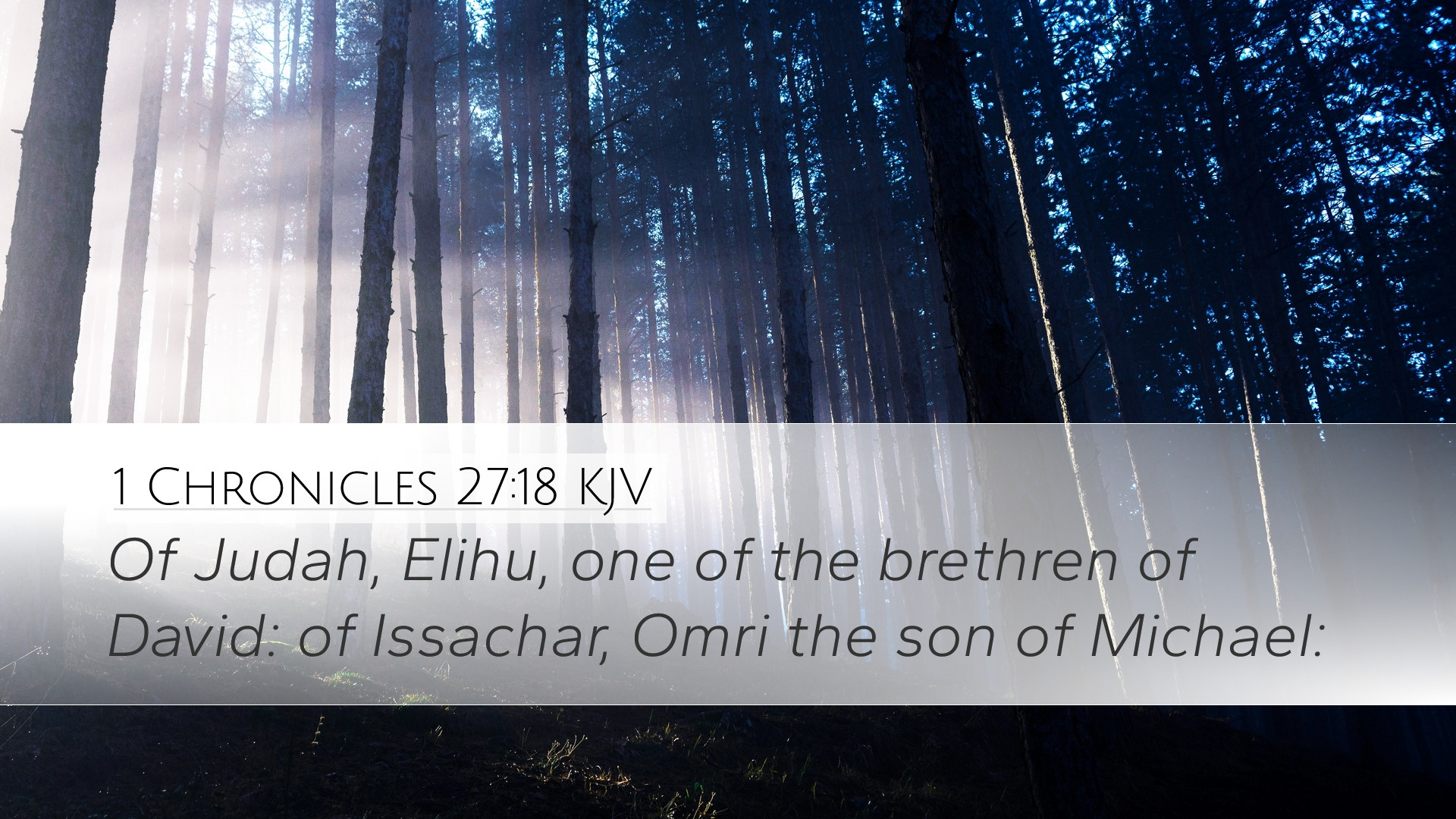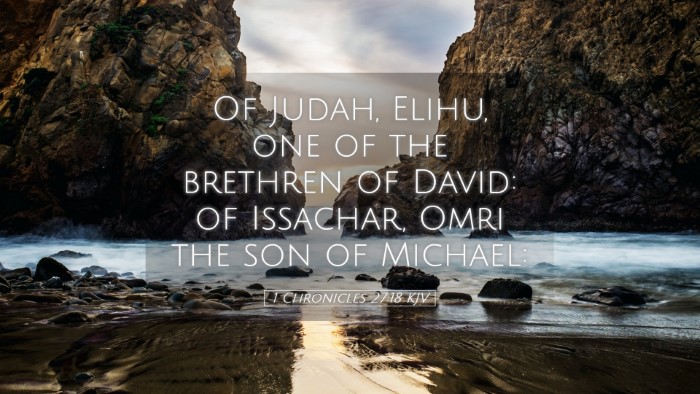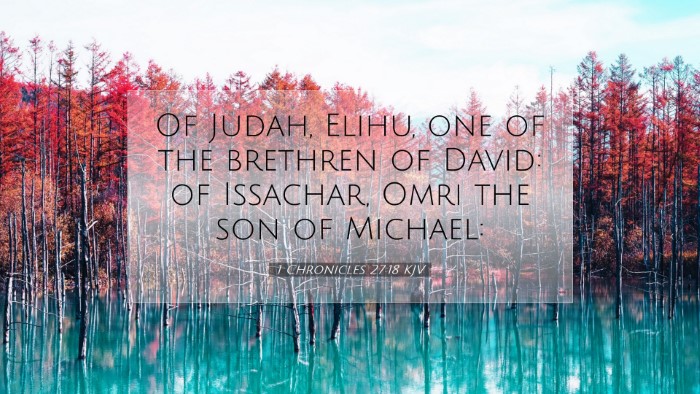Commentary on 1 Chronicles 27:18
Bible Verse: 1 Chronicles 27:18 - "And of Judah, Elihu, one of the brethren of David: of Issachar, Omri the son of Michael:."
Contextual Overview
The Book of Chronicles, primarily focused on the lineage and reign of David and the history of Israel, serves as a bridge connecting the Israelite past with their future. This specific verse appears within a larger context where King David organizes the leaders of various tribes for the purposes of military and administrative structuring during his reign. Understanding these verses aids in comprehending the divine order established in Israel's governance.
Insight from Matthew Henry
Matthew Henry highlights the significance of organization within David's administration. He points out that in this verse, Elihu, representing Judah, signifies the importance of leadership from notable tribes. Henry asserts that the choice of leaders was divinely guided and reflective of God's plan for the nation of Israel.
- The Importance of Lineage: Henry notes that the inclusion of Elihu emphasizes the importance of lineage and heritage in the roles assigned to leaders within the tribal system.
- Judah's Significance: As the tribe from which David descends, Judah's leaders are critical to understanding the strength of David's reign. Henry reflects upon the Davidic lineage and its implications for future generations.
Insights from Albert Barnes
Albert Barnes elaborates on the structure of David's leadership choices, emphasizing the democratic elements within the appointment of military leaders. He denotes that Elihu's appointment reflects David's careful and strategic selection of leaders representing various tribes to ensure a cohesive national identity.
- Representation of Tribes: According to Barnes, each character mentioned is a reflection of the diverse makeup of Israel, affirming that David was keen on inclusive representation.
- Military Structure: Barnes elaborates on how the appointments made served not just an administrative function but were integral in preparing for potential conflicts, demonstrating foresight in leadership.
Insights from Adam Clarke
Adam Clarke's commentary delves into the specific identities of the individuals mentioned, providing historical context and genealogical significance. He emphasizes that each leader mentioned, such as Elihu and Omri, carried with them the weight of their respective tribes.
- Character of Elihu: Clarke notes that Elihu is described not only as a leader but as a brother of David, which enhances the personal stakes involved in his appointment.
- Symbolic Designation: Clarke reflects on the idea that the names cited are not arbitrary; they symbolize God's chosen individuals to lead His people, resonating with the idea of divine purpose.
Theological Themes
This verse invites deeper theological considerations regarding God’s sovereignty in choosing leaders and the overarching theme of divine order. The representation from different tribes underlines the importance of unity among diversity in leadership:
- Divine Order: The appointments illustrate how God orchestrates individuals for specific purposes, a principle that extends to contemporary church leadership.
- Unity in Diversity: The inclusion of various tribes signifies unity despite diversity, encouraging modern believers to embrace differences within the body of Christ.
Conclusion
1 Chronicles 27:18 provides key insights into leadership, lineage, and the organized structure of God’s chosen people. The commentaries from Matthew Henry, Albert Barnes, and Adam Clarke collectively underscore the significance of this verse in the broader narrative of Israel’s history and governance. For pastors, students, and theologians, this verse serves as a poignant reminder of the importance of godly leadership and the variety of roles each individual plays within the divine design.


